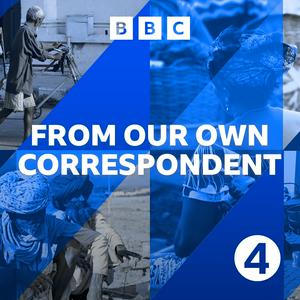Kate Adie introduces stories on Mexico's cartel war, President Trump's State of the Union address, the Russian soldiers escaping the front-line, and a slow boat journey in Benin.
Mexico was rocked by a violent rampage this week, after the drug lord, El Mencho, died following a fire-fight between his bodyguards and Mexican military commandos. It’s stark evidence of the challenges facing President Claudia Sheinbaum as she vows to take on the country’s criminal gangs. Quentin Sommerville reports on the fallout following El Mencho's death and the disturbingly deadly rivalry between the cartels.
'Our country is winning again,' was President Donald Trump’s rallying cry at his State of the Union address this week in Washington DC, citing success in the jobs market and stopping illegal crossings at the southern border. But his sinking approval ratings suggest he’s not necessarily convincing the public. Anthony Zurcher watched on in the House Chamber.
The exact toll on Russian forces in Ukraine has been closely guarded by the Kremlin, but estimates suggest more than a million Russian troops have been killed or injured over the past four years. For those who refuse to fight the consequences can be severe. Ben Steele met Russian troops who have escaped the front-line, at great personal cost.
The small West African nation of Benin is made up of around fifty different ethnic groups and languages. Most of the population is concentrated in the South - home to the country’s main cities, such as the port of Cotonou. While Benin has only a handful of highways, its lush inter-connected lagoons provide a vital commercial artery. Sara Wheeler took a trip down the Black River.
Producer: Serena Tarling
Production coordinators: Katie Morrison
Editor: Richard Fenton-Smith


